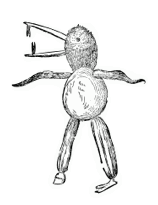What Sustains in This Autumn Rain
It'd be nice to have a stray dog limping along
the sidewalk. So you understand that sadness
is not original. The dog curls cold in my mind
as an unlit wick, which you refuse to kindle.
Here, touch its waterlogged hair with your eyes.
If we had an umbrella, we'd go and get it
home. The dog won't bite, the dog is not
looking for a bone. But there is no dog, you say,
it is just a puddle in the middle of the road,
which I have mistaken for a dog, its wrinkled
furs arresting six legs of an egg-laying
dragonfly. Sometimes, pain does not acquire
a form. Sometimes, it is alright to cry
through another pair of eyes. The dog is there,
barking blue, its whole body a torn fabric
wringing in rain. Now you can see what I see—
the stray dog is happy, happy without any bones,
unchained, chasing after his imaginary Henry.
____
Chaconne
Whether 无 emptiness is equivalent to 空 nothingness is a question
this child will consider in twelve years when he becomes a youth monk
in the temple nearest his hometown. But this afternoon, let him be
a child, let him drown the ants with his spit, knead their gastors till
his fingers are stained with their dark liquid which he licks clean & whose
bitterness will stick on his tongue as long as his tongue is red as his kasaya.
Tonight, as this youth monk repents his sins—of killing two soldiers,
who stabbed his mother in her womb, his unborn sister—he thinks
that the two bullets he planted in the soldiers' scalps with the touch
of his forefinger are as exquisite as the ants. He cannot understand that
adding twelve grams of metal to the bodies of two young men his age
could stop them from breathing; he cannot understand the ants'
death, for he thinks his petal-soft fingers were too powerless to raze.
The temple, built in the Song dynasty, is made of pine wood, splendid
on the outside, while on the inside there is as much vacantness as
completion. The perennial scent of incense, the oil lamps' green fire
burning like jade beads, fill just enough of the absent presence, enough
to accommodate both the ants and soldiers behind the draped eyelids
of the young monk, who is still, in fact, a child, who toys with his prayer
beads and chants the sutras as some sad love songs. He knows by heart,
even though he refuses to know, the teaching of Diamond Sutra, he knows
that 无 emptiness, contingent upon the fabric of impermanence, exists
while 空 nothingness, as it is, doesn't. His heart is a hole. As he repents,
tears stream from his pupils, black as the ants, leaden as the bullets
that had perforated (quiet resemblance to 空 nothingness) the soft flesh
of two boys who had hollowed his mother's womb. 空 Nothingness—
if it did not happen, if the cavities could be filled—does not exist.
He tries to go back to the afternoon to save the ants from his own fingers.
He tries so hard that he becomes one of the ants, and from the ant's eyes
he sees that, beside this killing, there is a cluster of lilies, tear-streaked,
shivering in the wind, which looks almost like the face of his unborn
sister, whom he dreamed of nightly. And the emptiness of lilies' slim
bodies, somehow, replaces the space that once resided in nothingness.



